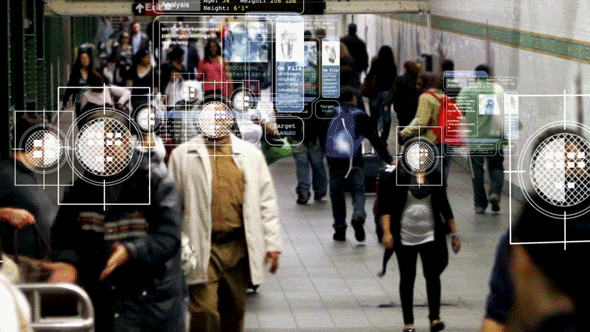Global Courant 2023-05-08 11:00:25
Law enforcement’s use of artificial intelligence-driven facial recognition puts everyone in what one expert called a “perpetual police lineup,” and studies show that the finger is more likely to be pointed at the wrong person if they’re black or Asian.
“Whenever they have a picture of a suspect, they compare it to your face,” says Matthew Guariglia of the digital rights nonprofit Electronic Frontier Foundation. told the BBC. “It’s way too invasive.”
The use of the technology in police investigations has boomed in recent years, especially after the January 6 riot at the Capitol.
Twenty of the 42 federal agencies surveyed by the Government Accountability Office in 2021 reported using facial recognition in criminal investigations.
AI MAY HAVE PREVENTED BOSTON MARATHON BOMBS BUT WITH RISKS: FORMER POLICE COMMISSIONER
CARDIFF, WALES – JANUARY 12: A man in a mask attends a protest against the use of police facial recognition cameras at Cardiff City Stadium before the Cardiff City v. Swansea City Championship game on January 12, 2020 in Cardiff, Wales. Police used the technology to identify those banned in an effort to prevent disorder. Critics argued that the use of such technology is invasive and discriminatory. (Photo by Matthew Horwood/Getty Images)
But the artificial intelligence algorithms in the technology incorrectly identified 10 to 100 times more African-American and Asian faces than white faces, according to a 2019 study from the National Institute of Standards and Technology.
Since then, several black men have been arrested for crimes they did not commit. These are three recent cases.
Robert Williams, Detroit, 2020
Robert Williams, a black man from Detroit, was the first reported wrongful arrest based on a facial recognition match. (ACLU)
Police used a blurry surveillance photo of a suspect in two jewelry store robberies and the algorithm matched it to Williams’ driver’s license.
The case sparked widespread criticism of the technology and a lawsuit from the American Civil Liberties Union.
ACLU FILES COMPLAINT ABOUT FACIAL RECOGNITION ARREST
“We know that facial recognition technology threatens everyone’s privacy by turning everyone into a suspect,” Phil Mayor, the ACLU’s senior staff attorney, told me. Fox 2 Detroit April 2021.
“We have repeatedly urged the Detroit Police Department to refrain from using this dangerous technology, but they insist on using it anyway. Justice demands that DPD and its agents be held accountable.”
Check out Vintra’s demo:
Charges against Williams were eventually dropped, but he was held for 30 hours, according to the ACLU lawsuit.
This was the first reported wrongful arrest for an incorrect facial recognition match, but the Detroit Police Department made the same mistake in 2019.
Michael Oliver, Detroit, 2019
Michael Oliver (left) was arrested in Detroit in 2019 based on a facial recognition mismatch, using the image from the video of the incident (right) (Handout)
Oliver was 25 when he was arrested during a traffic stop and accused of taking a phone from a teacher who was recording a fight outside a school, then breaking it.
Except Oliver wasn’t anywhere near; he was at work at the time. The arrest cost him his job and he said in previous interviews that he believed he would be wrongly convicted.
REGULATIONS COULD DOMINATE CHINA IN AI RACE, EXPERTS WARN: ‘WE WILL LOSE’
“I have a son, I have my family, I have my own house, I pay all my bills, so once I got arrested and lost my job, it was like everything fell, like everything fell down the drain,” Oliver told Wired during an interview last year.
The charges were eventually dropped after about a year and Oliver spent 10 days in jail. He sued the Detroit Police Department in federal court.
The same Detroit detective was involved in the arrests of Oliver and Williams, according to Wired, which cited court documents.
MEET THE 72-YEAR-OLD CONGRESSMAN WHO GOES BACK TO COLLEGE TO LEARN ABOUT AI
Randal Koran Reid, Atlanta, 2022
Reid was arrested by Atlanta police on the Friday after Thanksgiving 2022 on robbery warrants from Baton Rouge, Louisiana, a state he has never visited.
It took Reid days to find out that he was accused of using stolen credit cards to buy designer handbags.
After a week of calls to family and lawyers, Reid was finally released and charges were dropped. He said he is considering a lawsuit.
“Thousands of dollars for something I didn’t do,” Reid told The New York Times.
CLICK HERE TO GET THE FOX NEWS APP
The case was recently brought to attention New York Times Story, who reported that the use of facial recognition was never included in official documents, a practice reportedly becoming more common.
The Baton Rouge Police Department has not officially said that the misidentification resulted from the use of facial recognition or that the technology was used, but “a person with direct knowledge of the investigation” confirmed its use to The New York Times.
Chris Eberhart is a crime and American news reporter for Fox News Digital. Email tips to chris.eberhart@fox.com or on twitter @ChrisEberhart48


